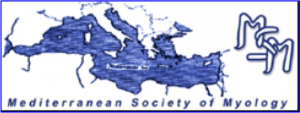Pathogenic germline variants in DMD gene, which encodes the well-known cytoskeletal protein named dystrophin, are associated with a wide range of dystrophinopathies disorders, such as Duchenne muscular dystrophy (DMD, severe form), Becker muscular dystrophy (BMD, mild form) and intermediate muscular dystrophy (IMD). Muscle biopsy, immunohistochemistry, molecular (multiplex ligation-dependent probe amplification (MLPA)/next-generation sequencing (NGS) and Sanger methods) and in silico analyses were performed in order to identify alterations in DMD gene and protein in a patient with a clinical manifestation and with high creatine kinase levels. Herein, we described a previously unreported intronic variant in DMD and reduced dystrophin staining in the muscle biopsy. This novel DMD variant allele, c.9649+4A>T that was located in a splice donor site within intron 66. Sanger sequencing analysis from maternal DNA showed the presence of both variant c.9649+4A>T and wild-type (WT) DMD alleles. Different computational tools suggested that this nucleotide change might affect splicing through a WT donor site disruption, occurring in an evolutionarily conserved region. Indeed, we observed that this novel variant, could explain the reduced dystrophin protein levels and discontinuous sarcolemmal staining in muscle biopsy, which suggests that c.9649+4A>T allele may be re-classified as pathogenic in the future. Our data show that the c.9649+4A>T intronic sequence variant in the DMD gene may be associated with an IMD phenotype and our findings reinforce the importance of a more precise diagnosis combining muscle biopsy, molecular techniques and comprehensive in silico approaches in the clinical cases with negative results for conventional genetic analysis.






